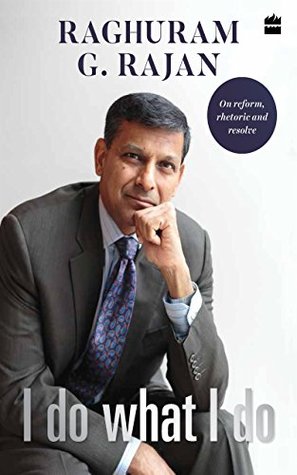More on this book
Community
Kindle Notes & Highlights
No doubt, the expansion in the variety of intermediaries and financial transactions has major benefits, including reducing the transaction costs of investing, expanding access to capital, allowing more diverse opinions to be expressed in the marketplace, and permitting better risk sharing. But it also has potential downsides, raising the question of whether we have unwittingly accepted a Faustian bargain, trading greater welfare most of the time for a small probability of a catastrophic meltdown. My view is that the world may be riskier because of skewed incentives among investment managers,
...more
Therefore, the incentive structure for investment managers today differs from the incentive structure for bank managers of the past in two important ways. First, there is typically less downside and more upside from generating investment returns, implying that these managers have the incentive to take more risk. Second, their performance relative to other peer managers matters, either because it’s directly embedded in their compensation, or because investors exit or enter funds on that basis. The knowledge that managers are being evaluated against others can induce superior performance, but
...more
Taken together, these trends suggest that even though there are far more participants who are able to absorb risk today, the financial risks that are being created by the system are indeed greater. And even though there should theoretically be a diversity of opinion and actions by market participants, and a greater capacity to absorb risk, competition and compensation may induce more correlation in behaviour than is desirable. While it is hard to be categorical about anything as complex as the modern financial system, it’s possible that these developments are creating more
...more
In fact, since the 1980s, the income gap has widened not just between CEOs and the rest of society but across the economy, too, as routine tasks have been automated or outsourced. With the aid of technology and capital, one skilled worker can displace many unskilled workers. Think of it this way: when factories used mechanical lathes, university-educated Joe and high-school-educated Moe were no different and earned similar paychecks. But when factories upgraded to computerized lathes, not only was Joe more useful; Moe was no longer needed.
The dollarization of liabilities has become widespread in recent years. More and more countries, banks, and firms in emerging markets issue debt denominated in a foreign currency (typically the dollar), even though they don’t have large dollar revenues. When a country’s currency depreciates, the resulting currency mismatch between revenues and obligations can lead to serious consequences – sovereign defaults, banking system meltdowns, and widespread corporate bankruptcy. Given these risks, why do countries persist in borrowing in foreign currencies? One reason – referred to as the ‘original
...more
We know that providing services to the poor isn’t just about money. One can build spanking new schools and pay teachers a good wage, yet they may not come in to teach. One can provide free drugs to the hospitals, intended for the poor, but the druggist may simply sell them on the black market. This is not to say that schools and hospitals aren’t necessary, but bricks and mortar are often the easy part. Policy makers also need to create the right incentives for the service provider and the poor client, as well as the right allocation of power and information between them to ensure that
...more
While it would be churlish to deny that many poor countries have made tremendous progress in creating the conditions for sustained growth, it doesn’t serve the citizens of poor countries either if we say that all the problems of the past are well and truly in the past. While no one has the ‘magic bullet’ for growth, there are some things that do seem important. These include sensible macroeconomic management, with fiscal discipline, moderate inflation, and a reasonably competitive exchange rate; laws and policies that create an environment conducive to private sector activity with low
...more
Consider a poor country that has to repay $100 million to official creditors such as developed countries or international financial institutions in the current period. Assume it earns $50 million in foreign exchange in this period and has no other resources. Clearly, it cannot repay the debt fully out of its own resources. Now consider three alternative proposals. First, the creditors do not forgive the debt, but lend $120 million to the country. Second, creditors forgive the debt down to $50 million, but lend nothing. Third, creditors forgive the entire debt and lend nothing. Which
...more
The bottom line is that the new mercantilism – I own more of others than they own of me – appealing as it may be, is not going to lead to more national security. Countries are collectively most secure if the control of productive assets is in the hands of those who can manage them best. Indeed, anyone who takes or keeps control of an asset that someone else can manage more productively is contributing to both individual and collective insecurity. The Great Game exacerbated insecurity even as each power tried to secure itself. Let’s hope that better sense will prevail this time.


